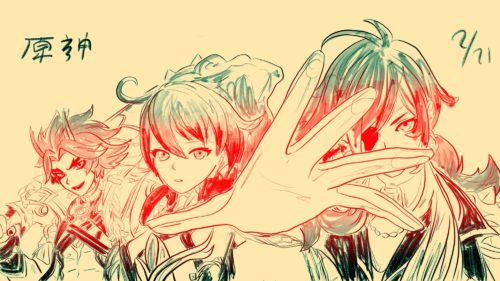Friday Song: ‘Outside World’ and its yearning and heartbreak

I recently rewatched the Hong Kong musical film Perhaps Love and rediscovered this ’80s classic from singer-songwriter Chyi Chin 齐秦. Although most people today who know of “Outside World” 外面的世界 (wàimiàn de shìjiè) will not link it to Peter Chan’s 2005 film, if you enjoy the song, I urge you to watch its cinematic parallel.
Chin was born in 1960 in Taichung, Taiwan. He spent three years in juvenile detention, and it was during this time that he acquired a serious appreciation for music, taught himself guitar, and composed “Outside World.” The song was released a few years later on his 1987 album Winter Rain (冬雨 dōng yǔ), which remains his most popular album to this day.
In “Outside World,” Chin expresses his sentiments while in isolation, his only source of encouragement coming from the regular visits of his older sister, Chyi Yu (also an acclaimed singer). Though the tune and instrumentation are simple — Chin’s lone voice carrying the main melody with occasional harmonizations, the accompaniment of a single guitar and a violin duet during the bridge — the song is able to convey all that it needs to. A ceaseless yearning for the world outside, a world that is equal parts exhilarating and unforgiving. A farewell to a loved one who pines after that same world, who leaves you behind for it. And then, the endless wait for that person to come home. The lack of ornamentation in arrangement, lyrics, and Chin’s vocal technique is key to bringing out the emotional essence of the song.
Below are the English translations of Chin’s lyrics, though they fall short of conveying the poetic poignancy embedded in every word of the original.
在很久很久以前 / A long, long time ago
你拥有我 我拥有你 / You had me, and I had you
在很久很久以前 / A long, long time ago
你离开我 去远空翱翔 / You left me behind, to soar in distant skies
外面的世界很精彩 / The outside world is exciting
外面的世界很无奈 / The outside world is disheartening
当你觉得外面的世界很精彩 / When you feel that the outside world is exciting
我会在这里衷心地祝福你 / I will remain here and wholeheartedly give you my blessings
每当夕阳西沉的时候 / Whenever the sun sets in the west
我总是在这里盼望你 / I stand here longing for you
天空中虽然飘着雨 / Though there is a drizzle across the sky
我依然等待你的归期 / I still yearn for the day of your return
The first verse is a wistful remembrance of the past and the departure of the singer’s lover for higher pursuits. The second verse suggests that the singer, too, wants to leave for all the promises that the outside world holds, but ultimately resigns to wish his lover well. The third verse is the most forlorn, telling of a hopeful, almost pathetic longing for his lover to return.
The Chinese actress/singer Zhou Xun 周迅 sings a rendition of Chyi Chin’s “Outside World” in Perhaps Love 如果•爱, entitled “Outside” 外面 (wàimiàn). It is simple in every way the original version was — musically, lyrically, vocally. The surface message is straightforward and easy to grasp, but the heartache stashed beneath these notes is one that only exists between the lines. Below are the lyrics and translations.
外面的世界很精彩 / The outside world is exciting
我出去会不会失败 / If I go out, will I fail?
外面的世界特别慷慨 / The outside world is very generous
闯出去我就可以活过来 / If I venture out, I will revive myself
留在这里我看不到现在 / Staying here, I cannot see the present
我要出去寻找我的未来 / I must go out and find my future
下定了决心改变日子真难捱 / After vowing to change my life, the days become arduous
吹熄了蜡烛愿望就是离开 / When I blow out the candles, my one wish is to leave
外面的世界很精彩 / The outside world is exciting
我出去会变得可爱 / If I go out, I will become lovable
外面的机会来得很快 / The outside world is full of opportunities
我一定找到自己的存在 / I am sure I will find my worth there
一离开 头也不转不回来 / Once I leave, I won’t look back, won’t come back
我离开永远都不再回来 / When I leave, I will never come back
These lyrics read like a modern response to Chin’s ardent devotion from decades ago. The situation is so painfully realistic that one can do nothing but sigh in despair. After having experienced the outside world in all its tantalizing ecstasy, who would want to return to that previous life of aimless, simpler joys?
Friday Song is SupChina’s weekly sign-off. Let us know what you thought of the week that was in the comments below, or email editors@thechinaproject.com.





